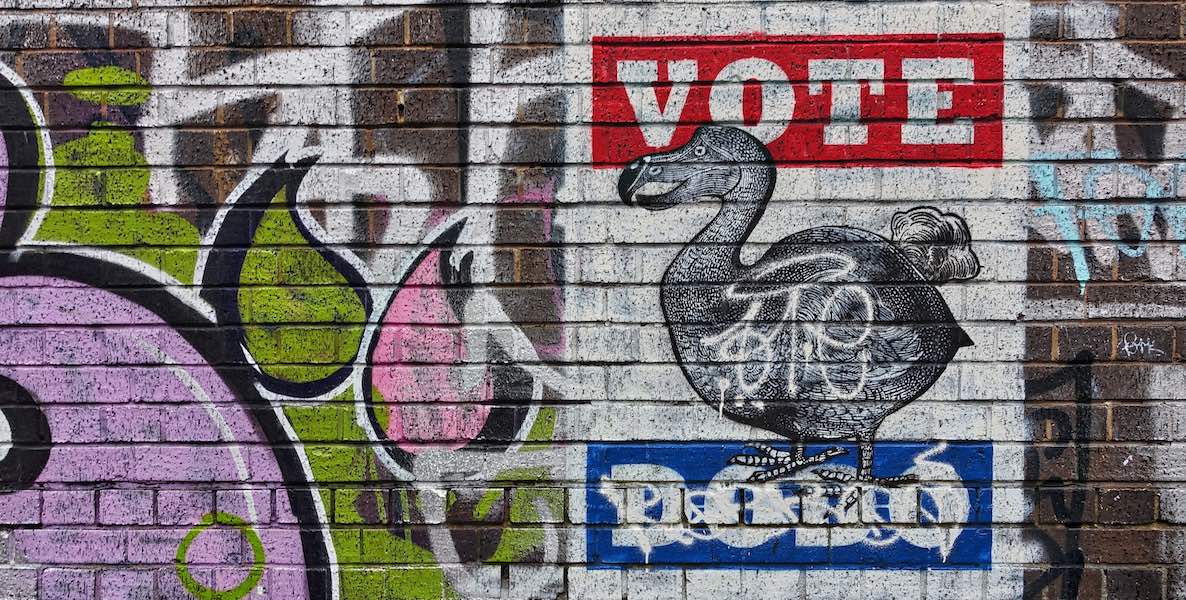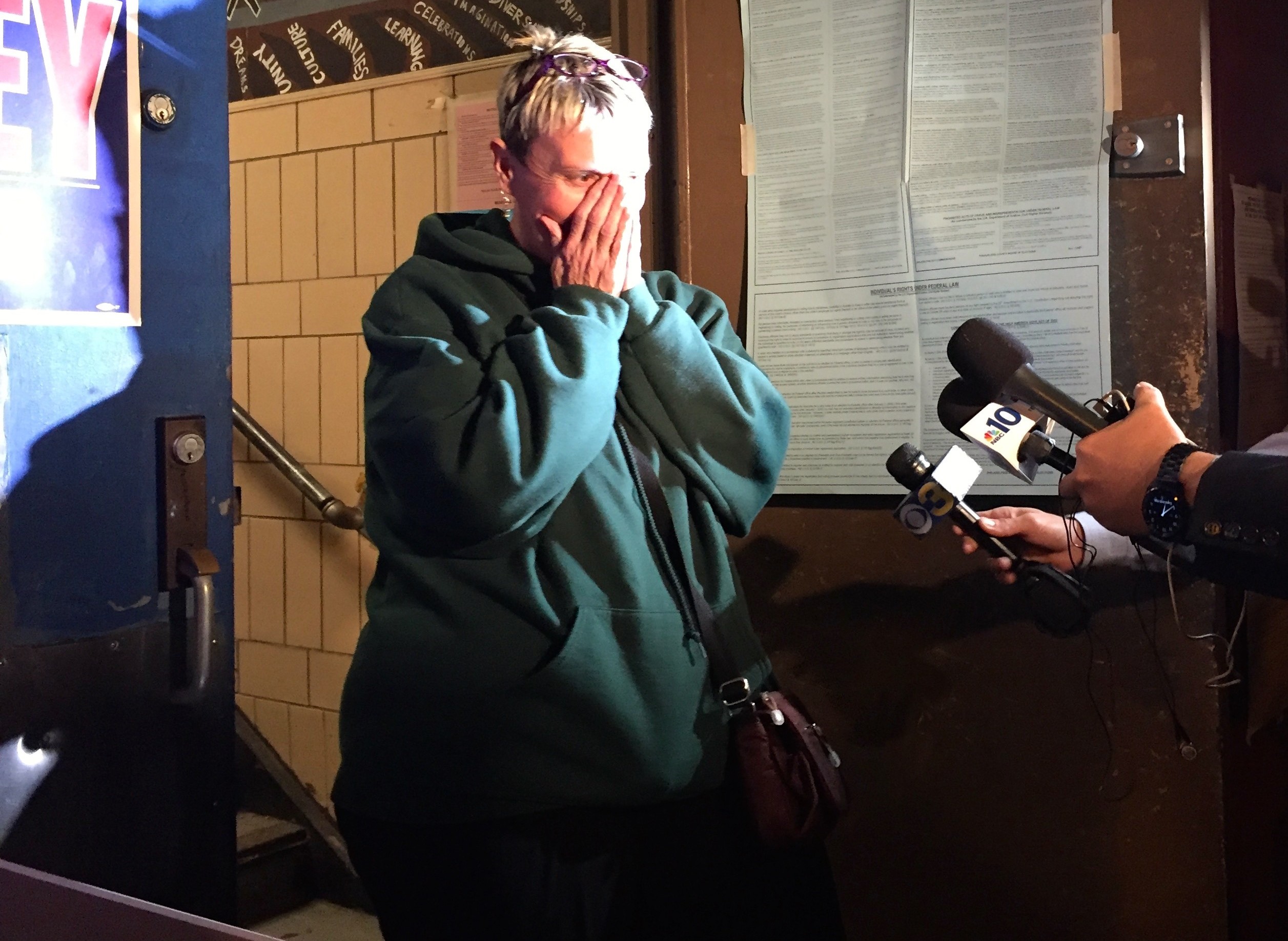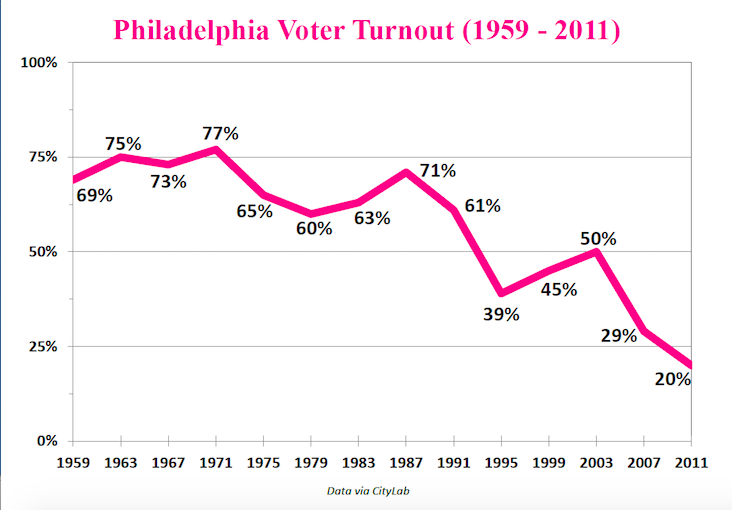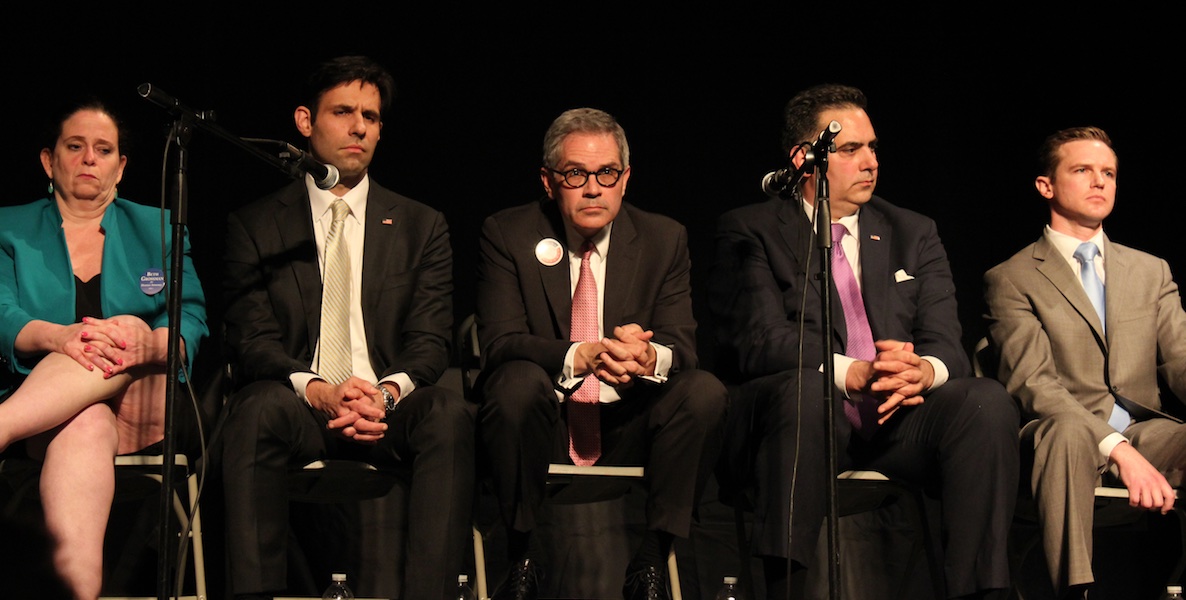If he were (a) a real person, and (b) witness to our current District Attorney campaign, Jack McCoy wouldn’t recognize his own profession. McCoy, of course, is the crusading prosecutor long played by Sam Waterston on the TV procedural Law & Order; like a long line of Philadelphia DAs—Arlen Specter, Ed Rendell, Lynne Abraham—McCoy simplistically saw the world as divided between good guys and bad guys … and saw himself as the last defender of civilized society.
He would cut corners to put bad guys away; you never heard him weep for those he convicted, or bemoan, say, their lack of employment opportunity as they were carted off to jail. No, as his eloquent summations often reminded us, Jack McCoy saw himself as an employee of the law-abiding taxpayer; on their behalf, he sent away those who had broken our social contract.
I was reminded of McCoy—or, more accurately, of his absence—when, in recent weeks, I attended two forums and moderated a third one featuring the candidates for District Attorney. On one level, I was impressed by this crop seeking to succeed the disgraced current occupant of the office, Seth Williams. They’re all really smart and articulate.
On the other hand, I was disappointed. As America, in reaction to Trump, lurches leftward, our candidates have raised their fingers to the wind and remade themselves into social justice warriors. It might make good politics—it aligns with a trend sweeping the nation, in which prosecutors are getting elected by sounding like public defenders—but, in this campaign’s rhetoric, it has obscured the traditional purpose of the District Attorney’s office: To make Philadelphia safer for you.
It’s been stunning to hear how unanimous the candidates are when it comes to policy—of a certain sort. All are fervent defenders of Philadelphia remaining a Sanctuary City, all oppose the city’s shameful civil forfeiture program, all favor doing away with or vastly reducing cash bail, all say they oppose the death penalty (with some minor differences.) Moreover, if you need proof that we’ve moved past the Jack McCoy era, at their forums each candidate seems to trip over the other in a rush to seem empathetic, progressive and sensitive to just how tough defendants in our criminal justice have it nowadays.
To be clear: Many of the reforms touted by our candidates are necessary; none other than Rendell, a longtime death penalty proponent, told me so: “We have to restore the community’s trust in law enforcement,” he says. It’s just that no one has persuasively connected how such criminal justice reform can also make the city safer.
Rich Negrin, The Inquirer and FOP-endorsed former managing director who movingly talks about cradling his father in his arms as a 13-year-old after his father’s murder, notes that one can still buy the weapon that killed his father on the internet and says, “The secret sauce is we need to give our children hope and empowerment to never pick up those guns to begin with by … creating community based programs.”
Joe Khan, a former U.S. Attorney and city ADA endorsed by Ed Rendell, talks about mentoring programs for felons after they’ve served their time. Judge Teresa Carr Deni talks about the “fear and anger” Stop and Frisk has caused in urban communities.
It’s not that they’re wrong; it’s just that the balance is skewed. Helen Ubiñas of The Daily News wrote a piece last week about how the candidates aren’t speaking to and for the victims of violence. I’d argue that they also haven’t been speaking to and for the average law-abiding taxpayer, who just wants to know: How are you going to keep our streets safe? And what are you going to do about the rush of politicians lining up on the evening news in perp walks?
In the three debates I watched, I counted only two specific policy proposals that once would have been tailor-made for debate in a race for District Attorney: Jack O’Neill, a baby-faced former ADA and Local 98’s favored candidate, has trumpeted Focused Deterrence, the South Philly pilot program of intense preventative law enforcement that has cut violent crime rates in Boston; and Michael Untermeyer, who ran for DA as a Republican eight years ago, talks about invoking a little-known statute in order to prosecute drug dealers for murder in cases of opioid overdose. Tellingly, neither policy is one the other candidates rush to agree with, unlike the unanimity when it comes to the progressive menu du jour.
It’s a troubling trend, this one of outsiders running against the offices they seek to lead. Remember, that’s what Kathleen Kane did, engendering a backlash from those career prosecutors she accused during the campaign of dragging their feet on the Jerry Sandusky case. How did that work out for us?
To be clear: Many of the reforms touted by our candidates are necessary; none other than Rendell, a longtime death penalty proponent, told me so: “We have to restore the community’s trust in law enforcement,” he says. It’s just that no one has persuasively connected how such criminal justice reform can also make the city safer. As a result, the tenor of the campaign smacks of pandering.
One candidate who is not a Johnny Come Lately to issues of reform is Larry Krasner, who has never been a prosecutor or held elective office. Krasner is a civil rights attorney and criminal defender who has made his living fighting the DA’s office and suing it on behalf of his clients. At the Center City Residents Association forum, which I moderated, he made sure to request that he “sit to the left of the other candidates”—a nod to philosophical verisimilitude.
A PAC funded by George Soros has contributed $1.45 million to Krasner’s campaign, in keeping with a trend that’s sweeping the country. A wave of reform-minded prosecutors were elected last year, many thanks to Soros’ largesse, in major cities like Cleveland, Denver, Chicago St. Louis and even Houston—long the capital punishment capital of the world. How far out there has it gotten? Mark Gonzalez, who was elected District Attorney in Nueces County, Texas, which includes Corpus Christi, has the words “not guilty” tattooed across his chest.
Like Gonzalez, Krasner argues that “real justice makes us safer,” which is a great line. But he doesn’t walk voters through what it means. Precisely how will doing away with cash bail result in fewer dangerous people in our communities? Krasner is mum, except to point out time and again that not playing the death penalty appeal game will free up resources politicians can use to improve our schools, a dubious real world connection, at best.
At the Philly Set Go millennial debate a few weeks ago, Krasner made clear he’s not running to succeed Seth Williams; he’s running in opposition to the District Attorney’s office itself. It’s an office, he said, that “defends convictions at all costs after pursuing convictions at all costs.” He circled back to note that such a sweeping condemnation might not apply in all cases, but in countless interviews since he’s been railing against the culture of the DA’s office. That’s why one former ADA tells me that, if Krasner wins, there will be a mass exodus from the office.
It’s a troubling trend, this one of outsiders running against the offices they seek to lead. Remember, that’s what Kathleen Kane did, engendering a backlash from those career prosecutors she accused during the campaign of dragging their feet on the Jerry Sandusky case. How did that work out for us?
Krasner highlights his outsider status, but the trend of electing outsiders in need of on-the-job training should by now be falling into disrepute. Kane, Tom Wolf, Donald Trump…maybe we should start voting for people who have actually kind of done the jobs they’re running for?
In his book, The Best Story Wins (And Other Advice for New Prosecutors), former prosecutor John Bobo submits that legal jujitsu usually comes down to who can tell the better story. If prosecutor elections follow the same rule, who has the inside track?
That’s another way of asking, who has differentiated him or herself from the pack? Krasner certainly has, so much so that the pack has followed him leftward. And Negrin’s tragic personal story has also given the voter something to remember him by. But it’s another, and far less sexy, part of Negrin’s story that ought to be kept in mind. For all the highfalutin back and forth about legal theory, it’s easy to forget that the District Attorney position is essentially an administrative job; it’s the managing of 600 lawyers and a budget of $53 million.
It’s not that they’re wrong; it’s just that the balance is skewed. I’d argue that they haven’t been speaking to and for the average law-abiding taxpayer, who just wants to know: How are you going to keep our streets safe? And what are you going to do about the rush of politicians lining up on the evening news in perp walks?
In one debate, when Negrin touted his experience running things—the city as managing director, Aramark in the private sector as associate general counsel—career prosecutor Khan scoffed, arguing that the job is about more than “issuing a casual Friday policy.”
Of course, Khan knows that management is about much more—it’s also about setting a culture. It’s about leading. Ed Rendell could tell Khan, whom he has endorsed, about his experience as a young ADA when Arlen Specter was the District Attorney. Every morning, Rendell was eager to get to work because he was on a mission.
“Arlen made you feel like it was us against world,” Rendell once told me. “He could be frightening, but also inspiring. He had a knack for making his ADAs feel like we were the last guardians at the gates of Hell versus the forces of evil.”
I don’t know who among these candidates can grow into that kind of leader, but the narrative of our DA campaign is a type of refutation of the way characters like Specter and Jack McCoy saw the world, isn’t it? Listening to these candidates, it’s easy to conclude there are no more forces of evil to guard against—other than the deeply flawed system itself.
Header photo taken at a District Attorney debate hosted by Philly Set Go





